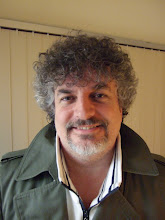As if that wasn't enough!!!!
Don't get me wrong, if that was all we accomplished, it would be plenty for me. But I think there's more to the package.
We are creating a distributed energy economy. By that, I mean that many of these energy-producing devices will be installed on people's homes and business offices, not in a central location. That means that me, sitting here in my home town, will have my own power and can do with it as I please. Just by virtue of installing the solar panels, or the wind turbine, I've made an initial investment, and now I'm "off the power grid." Or, more likely, I'm still connected to the grid as a backup, but when I produce more power than I can use and store, I pump that additional power back into the grid and the power company pays me for that. Basically, my meter begins to run backwards.
So, by distributing this energy production, we have the following benefits:
- No big power lines to devalue house prices and ugly-up the neighborhood.
- No massive power outages, or outages local to one house or office building.
- Power coming from multiple sources (solar and wind and geothermal, etc.), making it difficult for "solar barons" and "wind barons" to arise and create monopolies, because as soon as they raise prices on their energy or devices, the other sources become cheaper by comparison and take over.
- Much more difficult for terrorists to disrupt our power supplies.
- An additional way to add value to a residential house sale. "This house has solar panels, so you won't have to pay electric bills the whole time you're here."
- No fluctuation of energy prices to deal with. Energy production becomes just another function of your house, like insulation, storage, etc.
Maybe this will also lead us towards the community government idea of my previous post. If communities are more involved in producing their own energy, rather than buying it from large companies or government-owned utilities, they might be more likely to desire more autonomy.

No comments:
Post a Comment